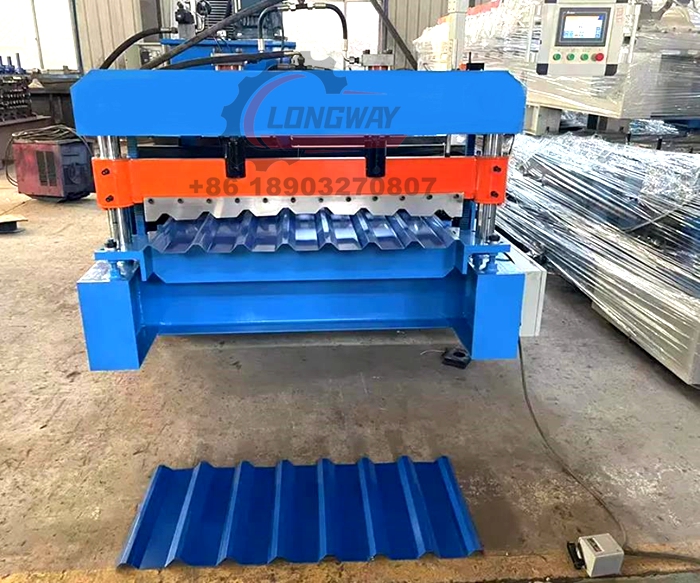Batten Roll Forming Machine Manufacturer for High-Quality Construction Solutions
Batten Roll Forming Machine Factory Crafting Precision and Quality
In the ever-evolving landscape of manufacturing, the demand for high-quality, precision-engineered components has never been higher. Among the critical players in this endeavor is the batten roll forming machine factory. This specialized factory designs and produces advanced machinery that transforms raw materials into high-performance battens used in construction, roofing, and various other industries.
Understanding Roll Forming
Roll forming is a specialized manufacturing process that involves feeding a long strip of metal into a series of rollers. These rollers gradually shape the metal into the desired cross-section. The process is highly efficient, allowing for the rapid production of uniform parts with minimal waste. Batten roll forming machines are specifically tailored to create battens — slender, often elongated, components that serve numerous applications, primarily in the construction industry as structural supports or aesthetic features.
The Importance of Battens in Construction
Battens play a critical role in various construction projects. They are primarily used in roofing systems and cladding applications, providing both structural integrity and visual appeal. These components are essential for mounting shingles, tiles, or panels, ensuring that roofs and walls are not only durable but also aesthetically pleasing. With the rise in demand for customizable designs and high-quality materials, investment in batten roll forming technology has become essential for manufacturers looking to meet the industry's evolving needs.
The Manufacturing Process
A batten roll forming machine factory employs a series of sophisticated steps to ensure the production of high-quality battens. The process begins with the selection of the appropriate raw material, usually cold-rolled steel or aluminum. These materials offer the necessary strength and durability required for construction applications.
Once the raw material is procured, it is fed into the roll forming machine. This machine consists of multiple sets of rollers, which progressively shape the material as it passes through. The precision of these rollers is critical; they must be meticulously aligned to ensure the final product meets stringent specifications. The roll forming process is continuous, allowing for high production rates while maintaining the uniformity of the battens.
batten roll forming machine factory

After the battens have been formed, they undergo additional processes such as cutting, punching, and sometimes even coating. Cutting is essential to size the battens according to customer specifications, while punching allows for the creation of holes for nails or screws, facilitating easier installation. Coating may include the application of paints or protective finishes that enhance durability and resistance to environmental conditions.
Quality Control
In a batten roll forming machine factory, quality control is paramount. Each batch of battens is subject to rigorous testing to ensure they meet industry standards and client specifications. This may involve dimensional checks, strength tests, and inspections for surface defects. By employing modern technology such as laser measuring systems and automated inspection tools, manufacturers can ensure that every product leaving the factory is of the highest quality.
Customization and Innovation
Modern batten roll forming machine factories are increasingly focusing on customization. As client needs evolve, the ability to produce battens in various profiles, sizes, and materials has become a significant competitive advantage. Advanced computer-aided design (CAD) software allows manufacturers to collaborate closely with clients, creating tailored solutions that meet specific project requirements.
Innovation also plays a crucial role in this sector. Factories are continuously exploring new technologies and materials that can enhance the performance of battens. For instance, the integration of lightweight yet durable materials can lead to significant cost savings in transportation and installation.
Conclusion
The batten roll forming machine factory is a critical component in the manufacturing supply chain, ensuring the production of high-quality battens that meet the demands of the construction industry. Through advanced engineering processes, rigorous quality control, and an emphasis on customization and innovation, these factories are poised to continue thriving in a competitive market. As the industry grows, so too will the capabilities of batten roll forming technology, paving the way for even more efficient and versatile applications in the future. Investing in such advanced manufacturing solutions not only benefits manufacturers but also contributes to the sustainable and aesthetic development of modern infrastructures.
-
Roof Panel Machines: Buying Guide, Types, and PricingNewsJul.04, 2025
-
Purlin Machines: Types, Features, and Pricing GuideNewsJul.04, 2025
-
Metal Embossing Machines: Types, Applications, and Buying GuideNewsJul.04, 2025
-
Gutter Machines: Features, Types, and Cost BreakdownNewsJul.04, 2025
-
Cut to Length Line: Overview, Equipment, and Buying GuideNewsJul.04, 2025
-
Auto Stacker: Features, Applications, and Cost BreakdownNewsJul.04, 2025
-
Top Drywall Profile Machine Models for SaleNewsJun.05, 2025








